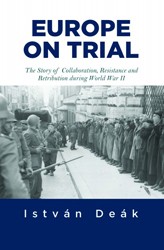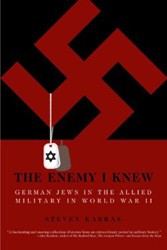Nazi propaganda on the eve of the Nazi seizure of power in 1933 emphasized the manner in which the Jews poisoned the mind and “soul” of the German people. Historians attribute this to the overwhelming presence of the small German Jewish population in the arts, politics, press, and economy; absent from the standard list, however, is the accusation that Jews contributed to Germany’s decline through the dissemination of narcotics, “the greatest toxic effect which was alien to the country and the race.”
The antisemitic association of the spread of drugs with Jews merged into a “a single toxic or epidemiological unit that menaced Germany.” Once Hitler — who ended his life, Ohler notes, as an addict in the throes of withdrawal — rose to power, narcotics were forbidden for personal use in Nazi Germany, but journalist and author Norman Ohler exposes the hypocrisy of the Nazi propaganda machine inasmuch as narcotics became a staple of German life, ranging from Hitler’s injections of Eukadol (a cousin of Heroin) by his private physician, Theodore Morell, to the use of Pervitin by the German army.
Among the many interesting sections of Ohler’s book is his discussion of Pervitin and its uses by Germans in World War II. One of the side effects of the drug was that it allowed soldiers to fight tirelessly — for more than 48 hours without sleep. In the German’s invasion of Poland, “which led to the deaths of 100,000 Polish soldiers, and by the end of the year, 60,000 Polish citizens, the drug helped the aggressors to work without any sign of tiredness until the end of the mission… it provided that extra portion which made everything that much easier.”
Ohler also includes a chapter on the Nazi use of slave labor in Sachenhausen, where experiments were conducted on prisoners to explore how drugs might increase endurance of the Wehrmacht in battle. (The “medical” experiments at Auschwitz, by contrast, focused on brainwashing and consciousness control.) Although it is known thatEinsatzgruppen, the Wehrmacht, and Germany’s Eastern European helpers used alcohol to fortify themselves for the operations of the “Holocaust by bullets,” the use of drugs in the murder of European Jewry unfortunately remains largely unexplored.
While drugs alone cannot explain Germany’s early successes in World War II, Ohler makes an important case for the importance of the exploration of this subject toward a more complete historical understanding of the Third Reich and the Holocaust.
Related Reads:




